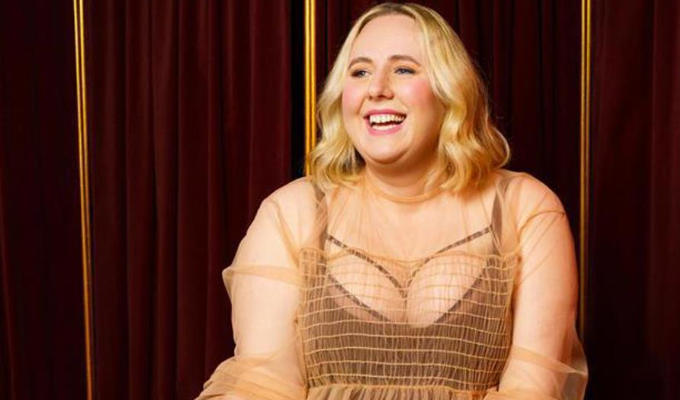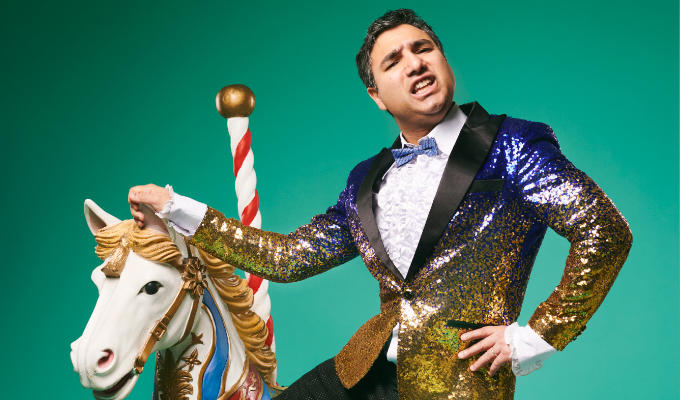Spaced 1999
Chris Hallam celebrated the cult sitcom's tenth birthday
Ten years ago, the British comedy scene was very different from the one we know today. BBC Three was still the stuff of science fiction and luminaries as Jimmy Carr, David Walliams and Ricky Gervais were all almost completely unknown.
Worse still, whereas the US hit factories were pumping out Friends, Frasier and Will and Grace, Britain had been experiencing a severe sitcom drought since the end of Men Behaving Badly and Father Ted in 1998.
Then on September 24, 1999, came Spaced. Only a privileged few saw it on its opening night, but those who did had reason to be impressed. Not only had co-creators and stars twentysomethings Simon Pegg and Jessica Stevenson delivered the rare feat of creating a classic first episode (something that even Blackadder and Father Ted failed to do) but the series which followed was a triumph.
Best known then for roles in Lynda Bellingham sitcom Faith in the Future, the sketch series Big Train and, in Stevenson’s case, The Royle Family, Pegg and Stevenson had conceived Spaced partly in reaction to series such as Game On, aimed at twentysomethings but in fact written by people closer to retirement age. Spaced aimed to speak to its own generation directly.
Yet like many of the best comedies, the premise could hardly have been more conventional. Following a chance encounter in a coffee shop, recently dumped comic store worker Tim Bisley (Pegg) and wannabe journalist Daisy Steiner (Stevenson), hatch a plan to secure a flat advertised for a ‘professional couple only’.
After fooling the flat’s boozy landlady Marsha (Julia Deakin) into thinking that they are a couple, the stage was set for the arrival of a wealth of supporting characters including moody artist Brian (the superb Mark Heap) and Tim’s gun-obsessed best friend Mike (played by Pegg’s real life friend Nick Frost).
Partly, it was a style thing. Edgar Wright - how many other British comedy directors can you even name? – is as much a star of the show as those on screen, directing every scene with a vigour that suggests his life depends on it. The show was also ahead of its time in dispatching with a studio audience – a rarity then, although it’s hard to think of a good comedy that has a laughter track today – and for being crammed with a plethora of parodies and popular culture references.
None of this would matter, of course, if the show and its characters weren’t so funny, endlessly quotable and likable. In many respects, the story of Spaced is not the story of its brief two-series run but of how the show has gradually built up a cult following through DVD sales, the web (notably the Spaced Out site) and as a result of near spin-off films Shaun of the Dead and Hot Fuzz.
I missed the entire series the first time round: everything from Tim’s epic paintball battle with his former friend turned nemesis Duane Benzie (Peter Serafinowicz), the Robot Wars tournament, to the classic rave episode. Happily, I’ve had plenty of time to catch up since and I suspect I’m not the only one. Today’s Spaced fan is far more likely to have picked it up in recent years than watched from the beginning.
It would be wrong to overstate Spaced’s influence. British comedy wasn’t dead before it came on and it didn’t suddenly revive afterwards. Future stars Paul Kaye, David Walliams and Ricky Gervais (the last playing an sleazy office worker called ‘Dave’) may all have been among the supporting cast, but even today, few of the main players are household names.
The ever affable Pegg is starring in Hollywood films opposite Megan Fox, but his success merely highlights the relative obscurity of Jessica Stevenson, now Hynes, who has never enjoyed the same success in anything since. And, as with Peep Show, the most remarkable thing is how many people have not only never seen Spaced but haven’t even heard of it.
They are the unlucky ones. Spaced is perhaps the only comedy I would defy anyone on Earth to dislike. Clever without being smug, witty without being obscure, Spaced remains a landmark comedy series, worthy of mention in the same breath as classics such as Fawlty Towers, Blackadder, The Office and Peep Show. On its tenth anniversary, I salute it.
Published: 23 Sep 2009






